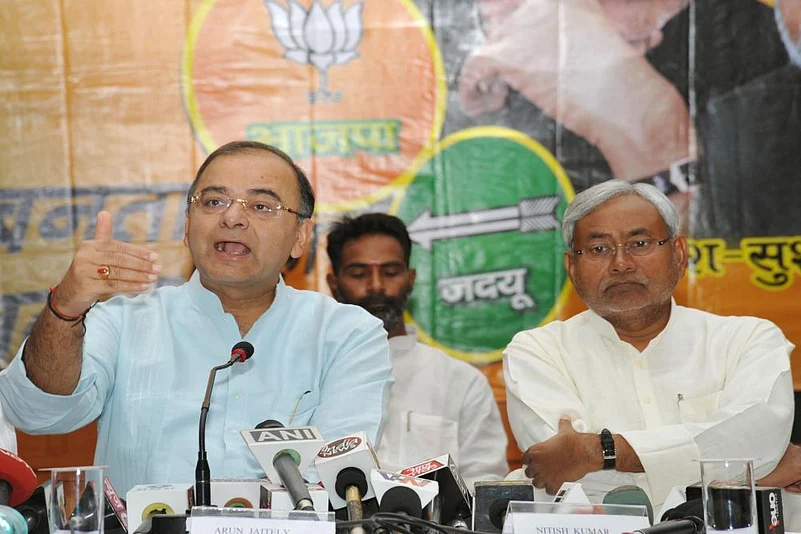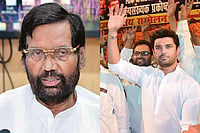The Bihar government was quick to announce a two-day state mourning over the death of former Union minister Arun Jaitley on Saturday. It did not come as a surprise given the close rapport Chief Minister Nitish Kumar shared with him over the years.
Nitish, in fact, owes a lot to Jaitley because it was the departed BJP leader who had played a crucial role in making him the Chief minister of Bihar at a time when even his own colleagues in the JD-U, including George Fernandes, were not willing to accept him as the leader of the NDA in the state.
The February 2005 assembly elections had thrown up a hung assembly in Bihar resulting in the imposition of President’s rule in the state. The NDA consisting of the JD-U and the BJP had not declared its chief ministerial candidate in that election. But ahead of the November 2005 assembly elections, the BJP top brass decided to project Nitish as the NDA’s chief ministerial candidate, realising that it would not be possible to dislodge the RJD government from power after 15 years without Nitish at the forefront of the tough poll battle. Earlier in 2000, Nitish had actually taken over the Chief Minister of Bihar with the BJP’s support but his government could not last beyond seven days for want of a majority in the state assembly.
Nevertheless, the BJP’s decision to project Nitish as the chief ministerial candidate in the run-up to the November 2005 elections did not go down well with George Fernades, who was the NDA convenor at the national level apart from being the numero uno leader of his party.
An upset Fernandes was quick to announce that Nitish was the choice of the BJP and not the JD-U. This came as a blow not only to Nitish but also to the BJP leadership which was hoping that the announcement would be approved by all the leaders in the NDA.
Nitish’s supporters believed that Fernandes had been “instigated” by certain party leaders like Digvijaya Singh to oppose the decision. Fernandes’ loyalists, on the other hand, felt that Nitish would not be acceptable to all sections of society. Even a few BJP leaders such as the widely respected Kailashpati Mishra echoed similar sentiments saying the upper caste voters would not accept Nitish as leader of the NDA.
This created a piquant situation for the BJP think-tank, especially Arun Jaitley in Delhi who had backed Nitish to the hilt because of his wider acceptability and political acumen. Jaitley along with the late Pramod Mahajan soon got into troubleshooting mode. Jaitley rushed to meet Fernandes to convince him that Nitish was the best bet for NDA in their fight against Laloo Prasad Yadav. Fernandes was initially reluctant and talked about resentment in his party over the issue. He also expressed his annoyance for not being kept in the loop about the decision. He, however, relented, thanks to Jaitley’s persuasive skills that he had honed as a practising lawyer over the years and had often used in firefighting within his party.
After Fernandes relented, Jaitley did not have any problem in convincing his own party men. What helped him in his job was that senior Bihar BJP leader Sushil Kumar Modi was in favour of Nitish.
The NDA’s strategy to project Nitish as its chief ministerial candidate in 2005 November polls paid off. The election turned into a direct contest between Nitish and Laloo in which the voters gave a decisive mandate laying the solid foundation for the formation of the Nitish-led government in Bihar, which continues to rule Bihar.


























